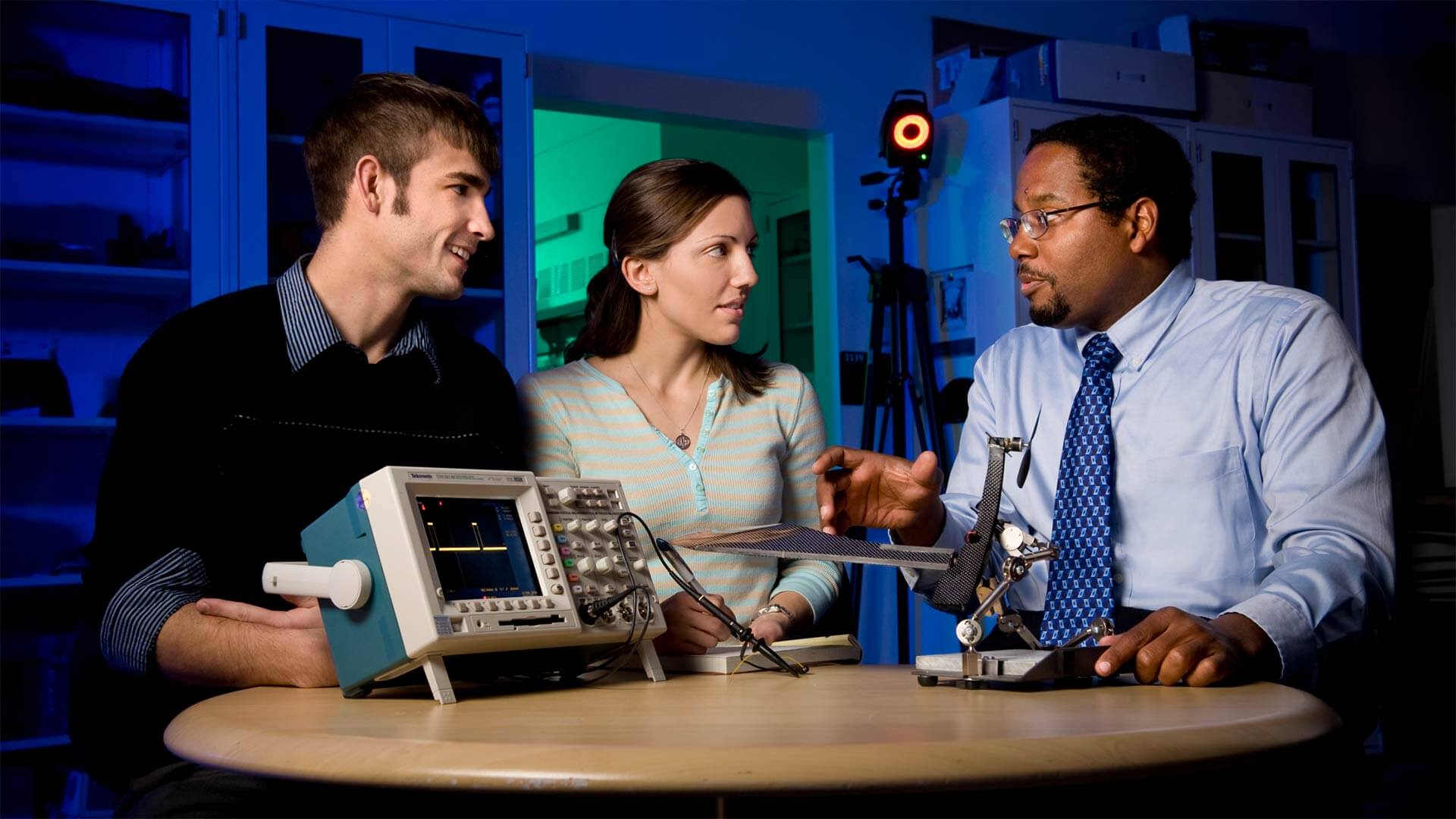- February 14, 2020
- By Maryland Today Staff
Darryll J. Pines, announced on Wednesday as the University of Maryland’s next president, won’t move into the job alone when he succeeds Wallace D. Loh in July.
Yesterday, the longtime professor and dean of the A. James Clark School of Engineering laid out his vision of his first months in the office, including bringing together a diverse transition committee of students, faculty and staff members to be his “eyes and ears.” They’ll meet broadly with groups around campus to help Pines set priorities and move toward solutions to problems.
In an interview with Maryland Today, he said he’d also draw on his knowledge and relationships after 25 years at UMD to increase diversity and inclusion, elevate student experiences and continue to raise the university’s standing as a research institution.
What about the opportunity to lead the University of Maryland is most appealing?
Just the immense calling to service, and the opportunity to give back to our university. I feel an immense obligation based on the incredible career that I’ve had here to give back. To me that means working to make a great university in every way: in the arts and athletics and in academics, and also to build better community and to work on the culture of diversity and inclusiveness throughout the university.
 How will your quarter-century history at Maryland as a professor and dean affect your approach to the job, and also the learning curve you’ll face?
How will your quarter-century history at Maryland as a professor and dean affect your approach to the job, and also the learning curve you’ll face?
I know the University of Maryland very well. I know a lot of people here, and I have a wonderful network. I know its processes. So I think that will enable me to generally get a quick handle on issues and concerns and constituencies, and then to build consensus about what’s the best approach. My long standing here, I think, gives me a competitive advantage in terms of the ability to identify these problems really quickly, to find solutions and then to execute those solutions on behalf of everybody at the University of Maryland.
What do you plan to do on Day One in the president’s office?
Let’s talk about what I’m going to do with my first 90 to 180 days. What I intend to do is to work with the community, which means meeting with various constituencies, holding listening sessions both on campus and off campus in the community, to hear their concerns, issues, problems and maybe even solutions for how they would like to see the university go forward in a variety of different areas: like community engagement, building a more diverse and inclusive environment and ensuring that every student can be successful academically.
As you mention, we have a large, diverse community. What are your ideas for addressing concerns coming from all the different parts of it?
One of the first things I’ll do is create a presidential transition team consisting of faculty, staff and students. That's going to be like my eyes and ears. That will inform me what the concerns are, and then I’ll come back to the community: “Here’s what we discovered from having talked to all of you … which ones do you think are the most important that we as the administration should address first?” Another area I want to hear from people on is: What you think the University of Maryland should do to become a more prominent national public research university? I love to hear people’s ideas.
As Clark School dean, strengthening the curriculum as well as providing outside-the-classroom opportunities were priorities for you. How do you extend that thinking to UMD as a whole?
I really value students getting engaged in experiential learning opportunities outside of the classroom. That’s one reason I like student competitions, because it allows you to do that. Students learn best when it’s not scripted, when they have to actually learn on their own and they have to work with one another to build a product, produce a play or whatever it may be. And then they grow as human beings in communication skills and leadership skills and in their technical skills. It’d be great to see that available to all students across the university.
How does the university continue growing and sharpening research and scholarship?
I’d like for every unit on campus to define what excellence means to them, and then to go after that in earnest. I’ve found that when you challenge people to be great, they can get pretty close. And some of them really get there. So if you admit great students, attact great graduate students, and then hire great faculty and provide the framework for them all to be successful—with the resources, the culture, the place for it to happen—good stuff always happens.
